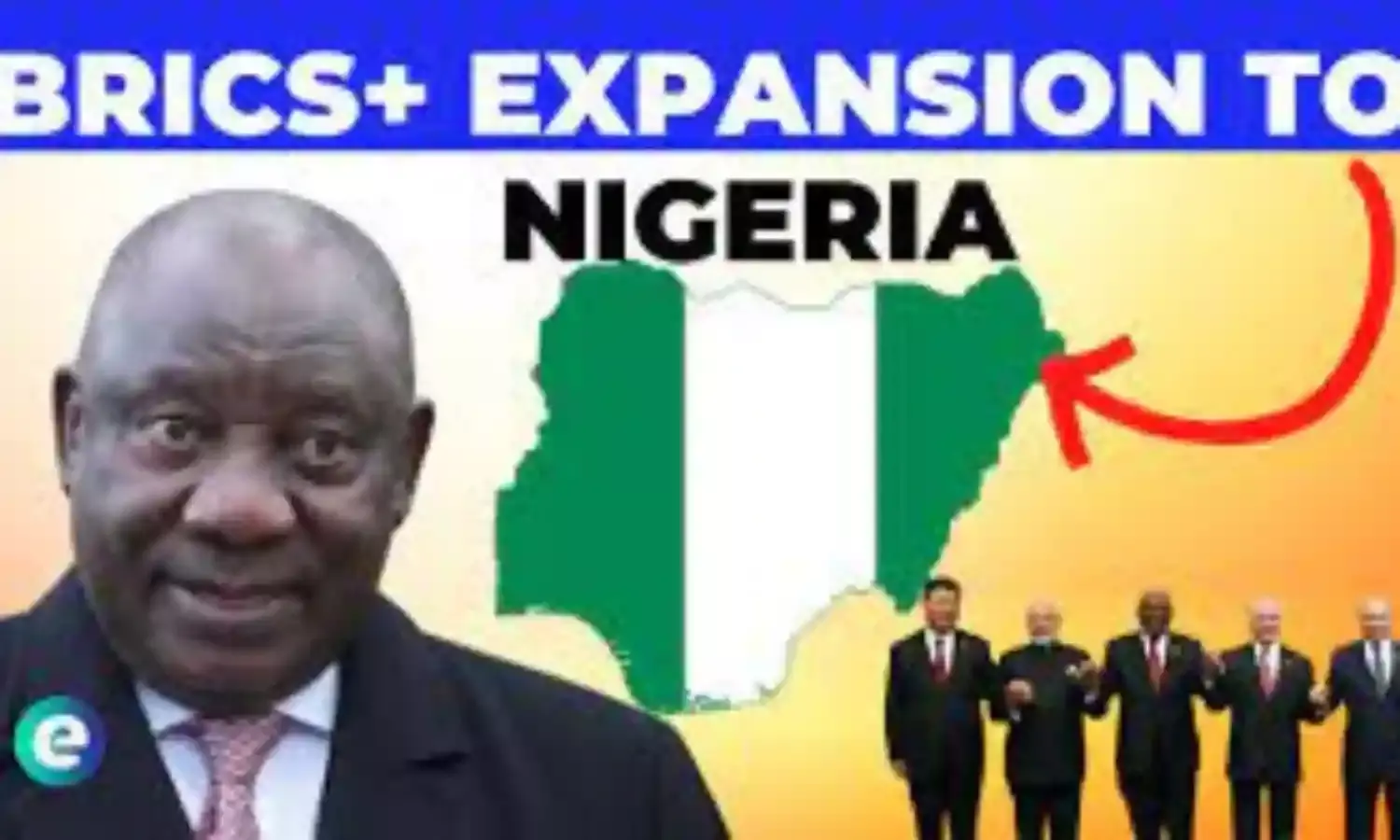Did Nigeria miss out on joining BRICS?
In his column Begging for a Seat at the Table, Azu Ishiekwene wondered why President Bola Tinubu was more obsessed with becoming a member of the G-20, rather than BRICS.;

At the 2023 15th BRICS Summit in Johannesburg, South Africa, the leaders of member countries that form the bloc– Brazil, Russia, India, China, and South Africa – announced the impending admittance of six more countries to its fold.
Host, President Cyril Ramaphosa of South Africa, said at the event that Argentina, Egypt, Ethiopia, Iran, Saudi Arabia, and the United Arab Emirates had been invited to join the bloc.
With full membership scheduled to take effect on Jan. 1, 2024, BRICS will now comprise 11 countries.
Several other countries have expressed interest in joining the group, a clear indication in the 67 countries invited as guests to attend its 2023 summit.
BRICS was founded as BRIC in 2009 as an alternative platform for its members to challenge the international multilateral cooperation dominated by the United States, the European Union and the Bretton Woods system.
South Africa joined the group in 2010, thereby giving it the present acronym which, with the new entrants, will be known as BRICS+.
Although many regard the bloc as an informal multilateral organisation, experts say its last summit was a statement of intent to truly challenge the status quo.
Navdeep Suri, a Fellow at India’s think tank Observer Research Foundation (ORF), said the BRICS’ Johannesburg summit passed a clear message.
“The 15th BRICS summit has gone further than any other in the recent past to modernize and galvanise the grouping.
“It has sent a strong signal that the post-World War II order should accept the multipolar reality and change with the times’’, he said.
This position was echoed by Jhanvi Tripathi, an Associate Fellow at ORF, who said the group’s composition suggests that it intends to shake up global economic and political cooperation.
“Even the profiles of the new members suggest that the system is headed for something beyond traditionally ‘acceptable’ partners in the eyes of the West.
“The presence of Iran especially and the reactions to it will be interesting to follow,” she said.
Indeed, even before the new members, the original five member countries accounted for over 40 per cent of the global population and a quarter of its economy.
Reuters reported before the summit in South Africa that at least 40 countries had indicated interest in joining the bloc, many of them emerging economies.
Many public affairs analysts and commentators have expressed curiosity as to why Nigeria – Africa’s biggest economy and most populous country – failed to secure admission into the potentially formidable bloc.
In his column Begging for a Seat at the Table, Azu Ishiekwene wondered why President Bola Tinubu was more obsessed with becoming a member of the G-20, rather than BRICS.
“Instead of trying to cross seven seas to join the G-20, Nigeria should be more worried that even though it was also a guest at the BRICS meeting in Johannesburg in August, it was not among the six countries that would get membership from January 2024, with the two new spots in Africa going to Ethiopia and Egypt,” he wrote.
Analysts say Bretton Wood institutions such as the World Bank and IMF are not in a hurry to reform and review their structural approach towards emerging markets’ economic challenges.
They say that as mono-cultural economies, emerging markets have no way of influencing the prices of primary products they export for foreign exchange.
Shouldn’t Nigeria join an economic bloc that offers more than currency devaluation, austerity measures, unequal access to foreign exchange and trade imbalances, some analysts ask analyst asked.
One way to look at the potential benefits of Nigeria joining BRICS is to look at how South Africa, so far, its smallest member in terms of size of economy and population, has leveraged its membership.
Available data shows that South Africa’s overall trade with its BRICS partners increased by an average growth of 10 per cent between 2017 and 2021.
BRICS accounted for 21 per cent of the country’s global trade in 2022, with trade with China accounting for about 15 per cent of South Africa’s global trade with a total trade of R556 billion.
India also accounted for 6 per cent of the total trade, increasing from R140bn in 2021 to R225bn in 2022.
Already, the bloc has floated the New Development Bank (NDB), formerly referred to as the BRICS Development Bank, which is a multilateral development bank to finance public and private projects.
There is also the mulling of a common currency, advocated by President Lula da Silva of Brazil, as a means of reducing member countries’ vulnerability to dollar exchange rate fluctuations.
Some foreign relations experts say perhaps, Nigeria’s reluctance to join BRICS is a cautious attempt not to rush into an association with a group labeled as anti-West.
But Prof. Günther Maihold, a Senior Fellow at the German Institute for International and Security Affairs, said such an assumption does not hold water.
“The old scripts of belonging to a certain order are no longer valid because the reliability of traditional partners has changed.
“The G-7 needs to be aware that the formation of BRICS+ is more than a mere political maneuver to advance China’s vision of international order,” he said.
Nigeria’s Afro-centric foreign policy and its relationship with the West are valuable. But global economy-wise, it can ill afford to put all its eggs in one basket.
By Kayode Adebiyi

